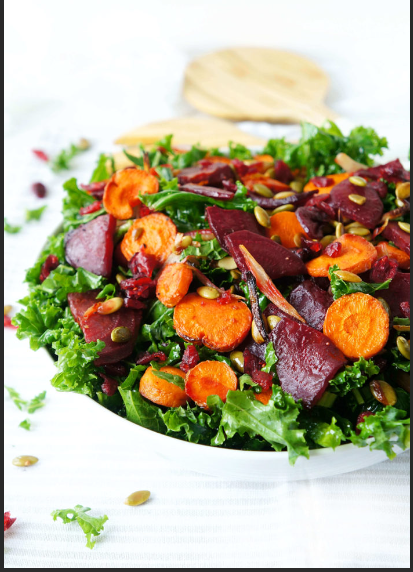Vivian Pearson
CSMS Magazine
Carrots and beets, often found nestled in salads or blended into juices, aren’t just colorful additions to your plate; they pack a punch in terms of nutrition and health benefits. These root vegetables are rich in vitamins, minerals, and antioxidants, making them essential components of a balanced diet. Let’s delve into the myriad health benefits these humble veggies offer.
Carrots
Carrots, with their vibrant orange hue, are known for being rich in beta-carotene, a precursor to vitamin A, which is crucial for maintaining healthy vision. Incorporating carrots into your diet can help prevent vision-related issues such as night blindness and age-related macular degeneration.
Moreover, carrots are a good source of fiber, which aids digestion and promotes bowel regularity. Consuming fiber-rich foods like carrots can lower the risk of constipation and promote gut health by feeding beneficial gut bacteria.
The antioxidants present in carrots, including beta-carotene, may also contribute to a reduced risk of chronic diseases such as heart disease and certain cancers. These antioxidants help neutralize harmful free radicals in the body, thereby reducing oxidative stress and inflammation.
Furthermore, carrots are low in calories and glycemic index, making them an excellent choice for those watching their weight or managing blood sugar levels. Snacking on carrots can help curb hunger while providing essential nutrients, making them a perfect option for maintaining a healthy weight.
Beets
Beets, with their deep crimson color, are loaded with essential nutrients like folate, manganese, potassium, and vitamin C. Folate, in particular, is crucial for fetal development during pregnancy and helps prevent neural tube defects.
The nitrates found in beets have been shown to have blood pressure-lowering effects, making them beneficial for cardiovascular health. Consuming beet juice or incorporating beets into your diet may help reduce hypertension and lower the risk of heart disease.
Beets are also rich in betalains, a group of potent antioxidants with anti-inflammatory properties. These compounds help protect cells from oxidative damage and may reduce the risk of chronic diseases such as cancer and diabetes.
Additionally, the high fiber content in beets promotes digestive health by preventing constipation and supporting a healthy gut microbiome. Fiber also helps regulate blood sugar levels and contributes to satiety, making you feel fuller for longer periods.
The natural nitrates present in beets have been shown to enhance athletic performance by improving blood flow and oxygen delivery to muscles. Athletes and fitness enthusiasts often consume beet juice as a pre-workout supplement to boost endurance and stamina.
Incorporating Carrots and Beets into Your Diet
There are numerous delicious ways to incorporate carrots and beets into your daily meals. You can enjoy them raw as crunchy snacks, grated into salads, roasted with other vegetables, or blended into smoothies and juices. Experimenting with different cooking methods and flavor combinations can make these nutrient-packed vegetables a versatile and tasty addition to your diet.
So, carrots and beets offer a wide range of health benefits, from promoting healthy vision and digestion to reducing the risk of chronic diseases and improving athletic performance. By including these vibrant root vegetables in your meals regularly, you can enhance your overall health and well-being. So, next time you’re at the grocery store, be sure to stock up on carrots and beets for a nutritious boost to your diet.
Also, see: Keep eating vegetables for a healthy heart


